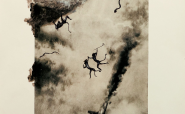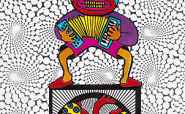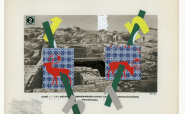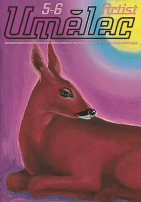|


Artículos recomendados

|
|
"In Cameroon, rumours abound of zombie-labourers toiling on invisible plantations in an obscure night-time economy."
|

|
|
Goff & Rosenthal gallery, Berlin, November 18 - December 30, 2006
Society permanently renegotiates the definition of drugs and our relationship towards them. In his forty-five minute found-footage film The Conquest of Happiness, produced in 2005, Oliver Pietsch, a Berlin-based video artist, demonstrates which drugs society can accommodate, which it cannot, and how the story of the drugs can be…
|

|
|
There’s 130 kilos of fat, muscles, brain & raw power on the Serbian contemporary art scene, all molded together into a 175-cm tall, 44-year-old body. It’s owner is known by a countless number of different names, including Bamboo, Mexican, Groom, Big Pain in the Ass, but most of all he’s known as MICROBE!… Hero of the losers, fighter for the rights of the dispossessed, folk artist, entertainer…
|

|
|
Nick Land was a British philosopher but is no longer, though he is not dead. The almost neurotic fervor with which he scratched at the scars of reality has seduced more than a few promising academics onto the path of art that offends in its originality. The texts that he has left behind are reliably revolting and boring, and impel us to castrate their categorization as “mere” literature.
|
|








Comentarios
Actualmente no hay comentariosAgregar nuevo comentario